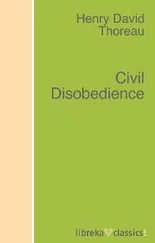The finest qualities of our nature, like the bloom on fruits, can be
preserved only by the most delicate handling. Yet we do not treat
ourselves nor one another thus tenderly.
Some of you, we all know, are poor, find it hard to live, are
sometimes, as it were, gasping for breath. I have no doubt that some of
you who read this book are unable to pay for all the dinners which you
have actually eaten, or for the coats and shoes which are fast wearing
or are already worn out, and have come to this page to spend borrowed
or stolen time, robbing your creditors of an hour. It is very evident
what mean and sneaking lives many of you live, for my sight has been
whetted by experience; always on the limits, trying to get into
business and trying to get out of debt, a very ancient slough, called
by the Latins _æs alienum_, another’s brass, for some of their coins
were made of brass; still living, and dying, and buried by this other’s
brass; always promising to pay, promising to pay, tomorrow, and dying
today, insolvent; seeking to curry favor, to get custom, by how many
modes, only not state-prison offences; lying, flattering, voting,
contracting yourselves into a nutshell of civility or dilating into an
atmosphere of thin and vaporous generosity, that you may persuade your
neighbor to let you make his shoes, or his hat, or his coat, or his
carriage, or import his groceries for him; making yourselves sick, that
you may lay up something against a sick day, something to be tucked
away in an old chest, or in a stocking behind the plastering, or, more
safely, in the brick bank; no matter where, no matter how much or how
little.
I sometimes wonder that we can be so frivolous, I may almost say, as to
attend to the gross but somewhat foreign form of servitude called Negro
Slavery, there are so many keen and subtle masters that enslave both
north and south. It is hard to have a southern overseer; it is worse to
have a northern one; but worst of all when you are the slave-driver of
yourself. Talk of a divinity in man! Look at the teamster on the
highway, wending to market by day or night; does any divinity stir
within him? His highest duty to fodder and water his horses! What is
his destiny to him compared with the shipping interests? Does not he
drive for Squire Make-a-stir? How godlike, how immortal, is he? See how
he cowers and sneaks, how vaguely all the day he fears, not being
immortal nor divine, but the slave and prisoner of his own opinion of
himself, a fame won by his own deeds. Public opinion is a weak tyrant
compared with our own private opinion. What a man thinks of himself,
that it is which determines, or rather indicates, his fate.
Self-emancipation even in the West Indian provinces of the fancy and
imagination,—what Wilberforce is there to bring that about? Think,
also, of the ladies of the land weaving toilet cushions against the
last day, not to betray too green an interest in their fates! As if you
could kill time without injuring eternity.
The mass of men lead lives of quiet desperation. What is called
resignation is confirmed desperation. From the desperate city you go
into the desperate country, and have to console yourself with the
bravery of minks and muskrats. A stereotyped but unconscious despair is
concealed even under what are called the games and amusements of
mankind. There is no play in them, for this comes after work. But it is
a characteristic of wisdom not to do desperate things.
When we consider what, to use the words of the catechism, is the chief
end of man, and what are the true necessaries and means of life, it
appears as if men had deliberately chosen the common mode of living
because they preferred it to any other. Yet they honestly think there
is no choice left. But alert and healthy natures remember that the sun
rose clear. It is never too late to give up our prejudices. No way of
thinking or doing, however ancient, can be trusted without proof. What
everybody echoes or in silence passes by as true to-day may turn out to
be falsehood to-morrow, mere smoke of opinion, which some had trusted
for a cloud that would sprinkle fertilizing rain on their fields. What
old people say you cannot do you try and find that you can. Old deeds
for old people, and new deeds for new. Old people did not know enough
once, perchance, to fetch fresh fuel to keep the fire a-going; new
people put a little dry wood under a pot, and are whirled round the
globe with the speed of birds, in a way to kill old people, as the
phrase is. Age is no better, hardly so well, qualified for an
instructor as youth, for it has not profited so much as it has lost.
One may almost doubt if the wisest man has learned any thing of
absolute value by living. Practically, the old have no very important
advice to give the young, their own experience has been so partial, and
their lives have been such miserable failures, for private reasons, as
they must believe; and it may be that they have some faith left which
belies that experience, and they are only less young than they were. I
have lived some thirty years on this planet, and I have yet to hear the
first syllable of valuable or even earnest advice from my seniors. They
have told me nothing, and probably cannot tell me any thing to the
purpose. Here is life, an experiment to a great extent untried by me;
but it does not avail me that they have tried it. If I have any
experience which I think valuable, I am sure to reflect that this my
Mentors said nothing about.
One farmer says to me, “You cannot live on vegetable food solely, for
it furnishes nothing to make bones with;” and so he religiously devotes
a part of his day to supplying his system with the raw material of
bones; walking all the while he talks behind his oxen, which, with
vegetable-made bones, jerk him and his lumbering plough along in spite
of every obstacle. Some things are really necessaries of life in some
circles, the most helpless and diseased, which in others are luxuries
merely, and in others still are entirely unknown.
The whole ground of human life seems to some to have been gone over by
their predecessors, both the heights and the valleys, and all things to
have been cared for. According to Evelyn, “the wise Solomon prescribed
ordinances for the very distances of trees; and the Roman prætors have
decided how often you may go into your neighbor’s land to gather the
acorns which fall on it without trespass, and what share belongs to
that neighbor.” Hippocrates has even left directions how we should cut
our nails; that is, even with the ends of the fingers, neither shorter
nor longer. Undoubtedly the very tedium and ennui which presume to have
exhausted the variety and the joys of life are as old as Adam. But
man’s capacities have never been measured; nor are we to judge of what
he can do by any precedents, so little has been tried. Whatever have
been thy failures hitherto, “be not afflicted, my child, for who shall
assign to thee what thou hast left undone?”
We might try our lives by a thousand simple tests; as, for instance,
that the same sun which ripens my beans illumines at once a system of
earths like ours. If I had remembered this it would have prevented some
mistakes. This was not the light in which I hoed them. The stars are
the apexes of what wonderful triangles! What distant and different
Читать дальше












